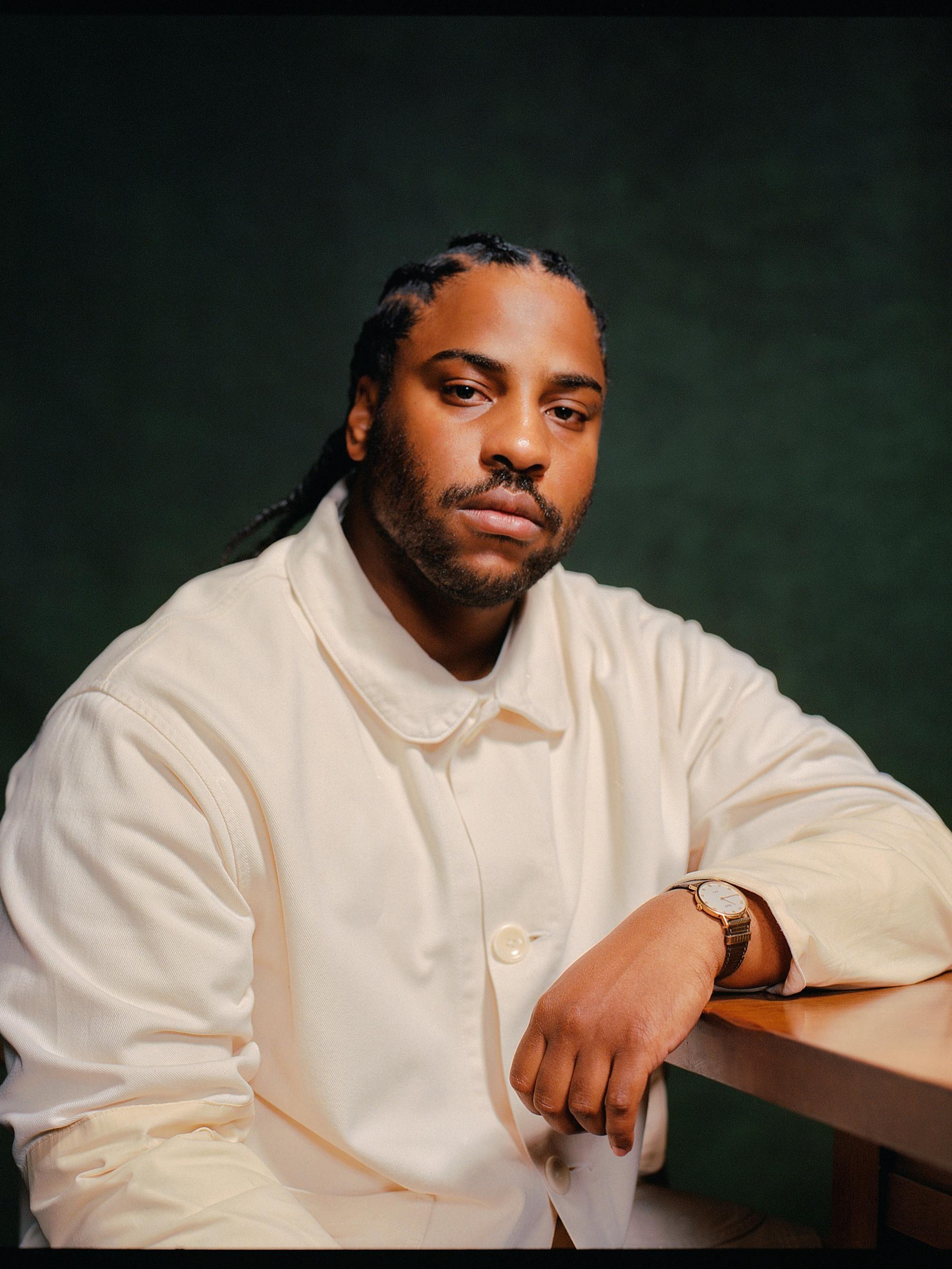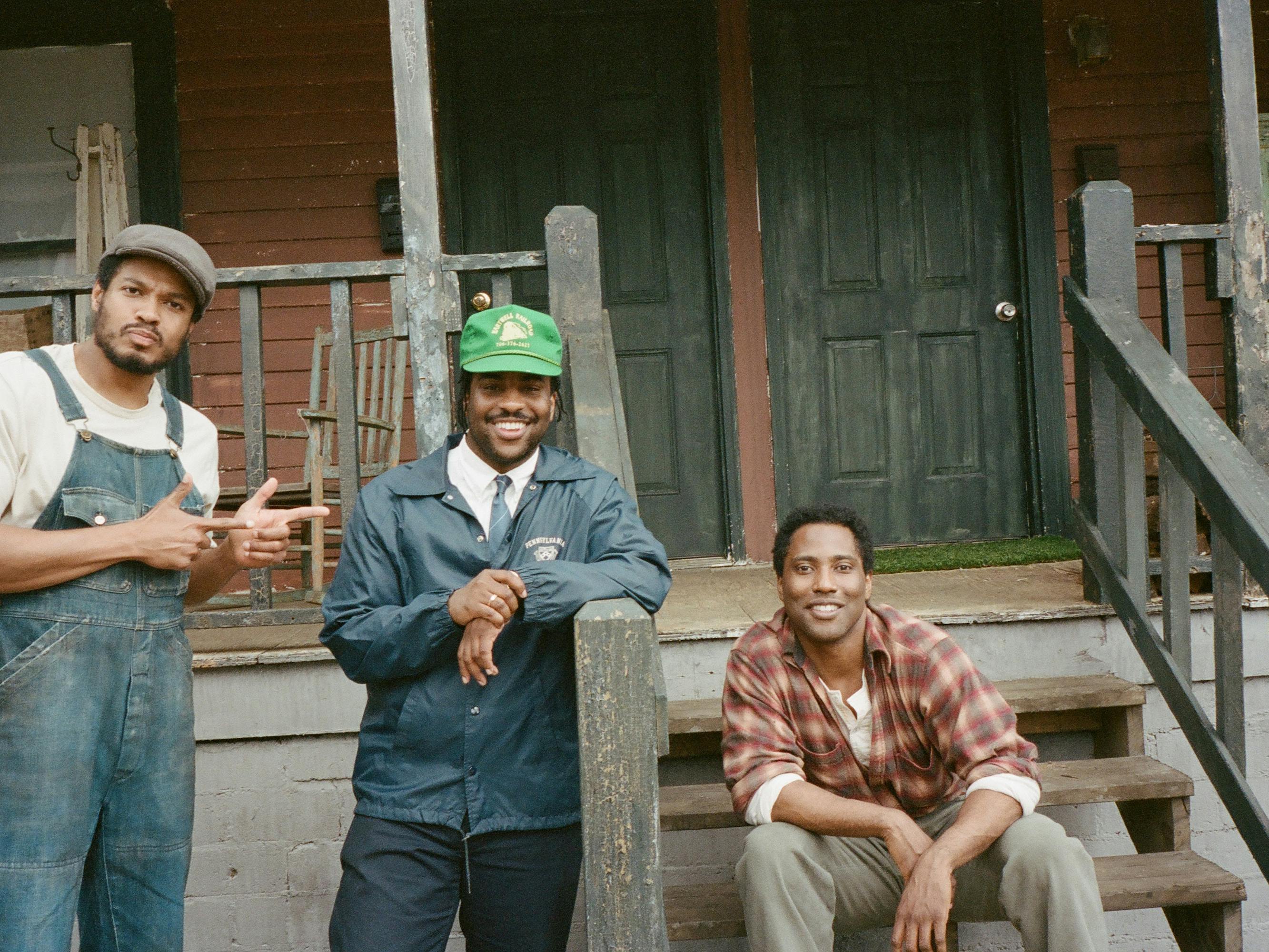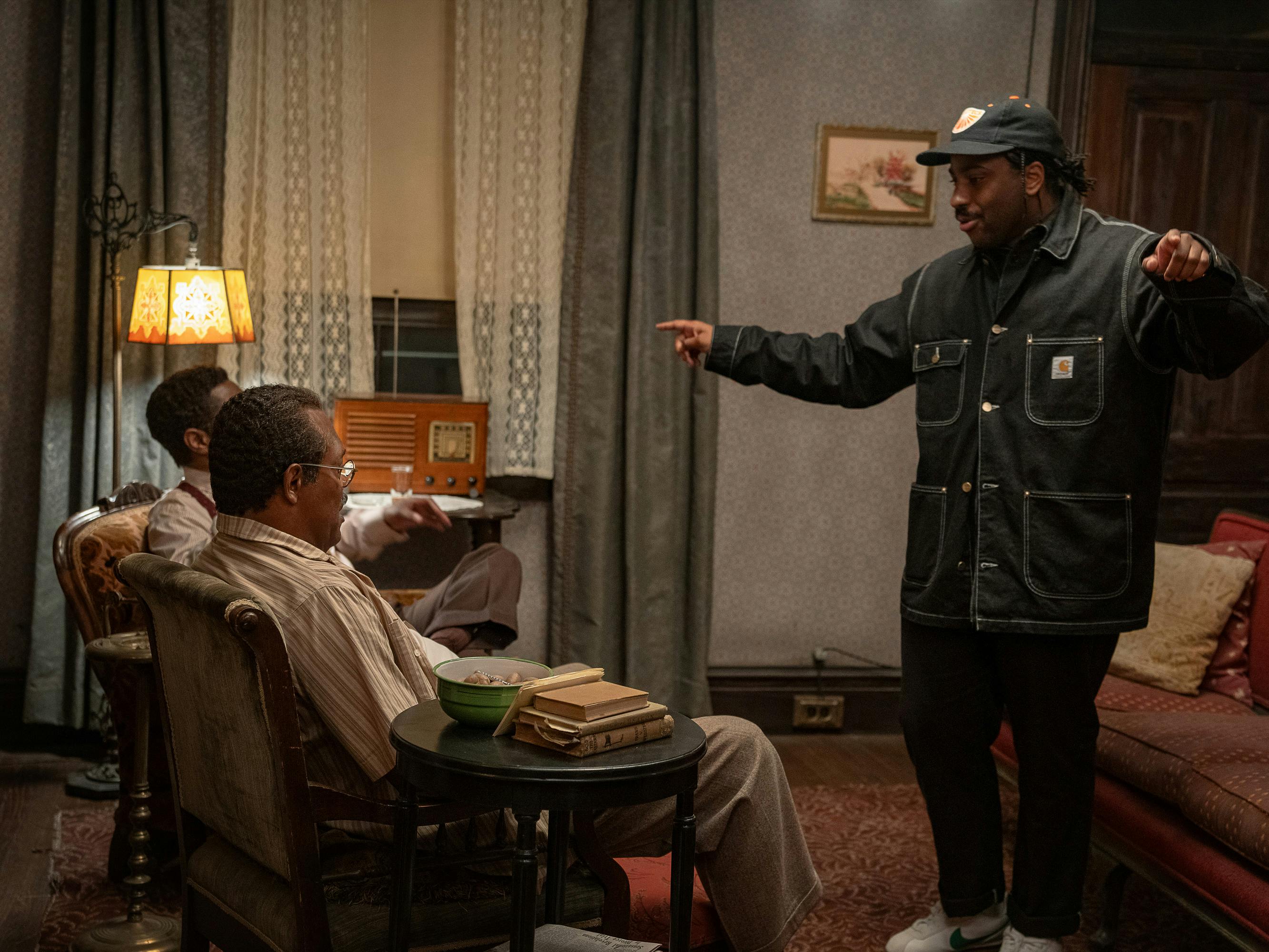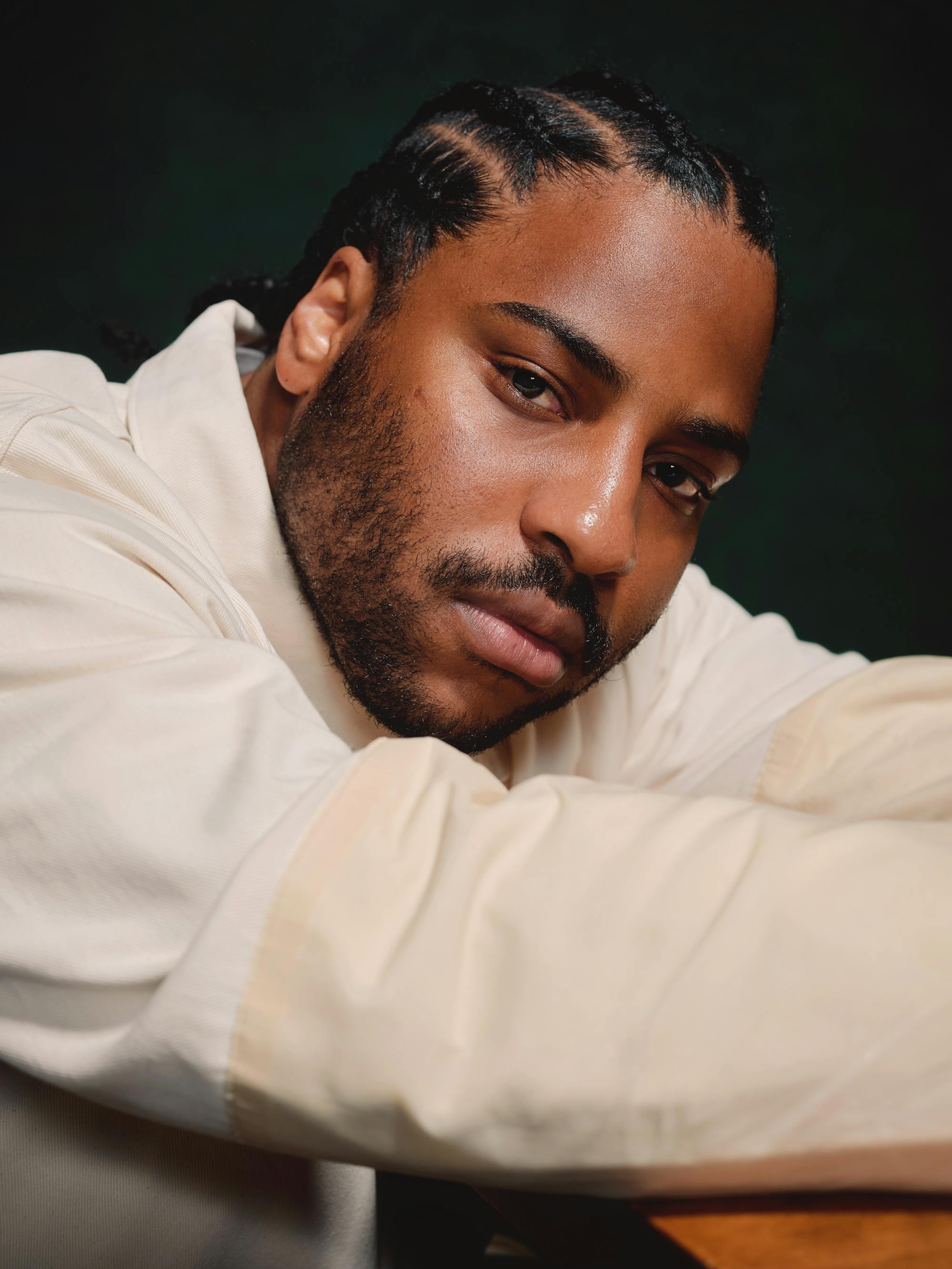For his feature-length debut, the director takes on a venerated August Wilson play set in 1930s Pittsburgh.
In the opening frames of The Piano Lesson, fireworks light up the sky to celebrate Independence Day and a young boy is tasked with keeping watch while his father reclaims a family heirloom. There is no way for either to know that the night’s events will haunt several generations to come, or that liberation — and the fireworks that herald it — can take many forms.
As a student of Black art and culture, the film’s co-writer and director Malcolm Washington was familiar with several of the works of the Tony- and Pulitzer Prize-winning playwright August Wilson (Ma Rainey’s Black Bottom, Fences). But, as of early 2020, he had yet to read The Piano Lesson, the fourth entry in Wilson’s acclaimed, 10-play American Century Cycle.
That changed during a stretch of forced togetherness when Malcolm holed up at the family homestead in L.A. alongside his parents, his older brother John David, and his twin sister Olivia in the early days of the pandemic. “It was like high school all over again,” says Malcolm, 33, with a laugh. Between bouts of sibling rivalry and revelry — he recalls tangling for the remote and debating what to eat for dinner — Malcolm decided to become the de facto family archivist.
Simultaneously, Washington was reading August Wilson’s Pulitzer prizewinning play The Piano Lesson for the first time. “Reading the story really impacted me because I thought about my ancestors and their legacy, how the decisions they made have affected my present. It felt like something I needed to spiritually engage with.”

Malcolm Washington
Malcolm was immediately captivated by the story, an emotional tug-of-war between brother and sister Boy Willie and Berniece Charles over a priceless heirloom — an upright piano with images of their enslaved ancestors painstakingly carved into it. Boy Willie wants to sell the piano to buy some land to shore up his, and the family’s, future and release them from the spiritual bondage it represents. Berniece wants to keep it in tribute to its ancestral legacy. Their uncles Doaker and Wining Boy, Boy Willie’s friend Lymon, and Avery, a preacher who aims to court Berniece, bear witness to the siblings’ battle and contend with the specters of their own pasts.
As the Charleses struggle to come to a consensus, they are confronted by Sutter’s ghost, the malevolent spirit of the family that once enslaved their forebears and which looms over the piano. Set in Pittsburgh, Pennsylvania in 1936, the play traverses time, space, and emotional ground, offering a microcosmic look at a Black family during the first phase of the Great Migration and the figurative and literal ghosts of trauma that have followed them up north.
Malcolm’s reaction to the material was so instantaneous and visceral that he saw the film take shape in his head. “I had an idea for the opening, ideas for pushing at the limits of theater and crossing it over to cinema, and how we could make that transition,” says Malcolm. “We wanted to present a kind of genre movie that has the underpinnings of this great American drama. Because of the supernatural elements and how visual the text is inherently, we felt we had a lot to elaborate on in a film version.”
Longtime producing team Denzel Washington and Todd Black had previously brought two of Wilson’s American Century Cycle plays to the screen as Oscar-winning films: George C. Wolfe’s Ma Rainey’s Black Bottom in 2020 and Fences in 2016. Denzel and Black had expressed interest in adapting the entire cycle for film. “The August Wilson family came to me years ago and asked if I would take care of August and his plays,” says Denzel. “This is the third film we’ve done now. And I would say, without question, it’s the highlight of my career, being able to bring to the screen one of the greatest playwrights in American history.”

Ray Fisher, Malcolm Washington, and John David Washington
Photograph by Daniel Lee
Working with his Oscar-nominated co-writer Virgil Williams (Mudbound), Malcolm set about breaking the narrative down and reconstructing it for the screen, keeping Wilson’s essence and artistry intact while widening the lens. “Virgil and I wanted to frame it in a way that was honest for both of us,” says Malcolm of the complex tale, which restlessly prowls from intimate to explosive, from grounded to supernatural. “If you’ve read any August Wilson story, there’s so much to engage with. So, it really becomes about what you’re going to spotlight. For me, it was the idea that we’re here because of decisions our ancestors have made. I’ve been acutely aware of how legacy can impact your life. I decided to frame it in that way and keep the spirit of the text while expanding on it.”
Williams compared the process of adaptation to fixing up a car. “It was like taking an engine apart and putting it back together, over and over and over again, so that we could get it running right,” he says.
While Wilson himself had been inspired in part by the Romare Bearden lithograph The Piano Lesson, Malcolm’s mood board included a number of artists and works across different genres. “You can’t understate what Jordan Peele is doing with horror and how important his contributions have been,” he says of his inspirations. “To Sleep with Anger, written and directed by Charles Burnett, deals with migration and how Black rituals and traditions are carried through people. Aside from films, I was inspired by the tradition of Black Southern Gothic, writers like Alice Walker and the artist Kara Walker.”
“Malcolm and Virgil both — Malcolm as the director, and Malcolm and Virgil as the co-writers — had a very clear vision,” says Black. “They shared that with Denzel and myself. And once we heard it, we were like, Go do your thing.”

Corey Hawkins, Samuel L. Jackson, and Malcolm Washington
Photograph by Daniel Lee
Malcolm’s cinematic vision — fostered while earning his cinema studies degree at the University of Pennsylvania, honed during his M.F.A. in directing with the American Film Institute, and fine-tuned by his work as a camera assistant and director of short films — was clear. But pursuing such a major work for his directorial debut required some bolstering of his nerves. “Taking on a project like this where you’re following in the footsteps of a giant and somebody that you admire is incredibly daunting,” he says of Wilson. “Out of a love for August and reverence for his legacy, I thought it was really important that new audiences get to see this and engage with this work. That was the driving force we used to get through most of the obstacles: the fear, self-doubt, or anything like that. For me, it was too important not to see through.”
Malcolm’s engrossing take on The Piano Lesson features a stunning cast, with John David as Boy Willie, Samuel L. Jackson as Doaker, Michael Potts as Wining Boy, and Ray Fisher as Lymon. Acclaimed actor Danielle Deadwyler (Till, The Harder They Fall) breathes life into the fierce and fragile Berniece and two-time Tony nominee Corey Hawkins (Straight Outta Compton, BlacKkKlansman) rounds out the ensemble as preacher Avery, the man responsible for the dramatic pyrotechnics at the film’s climax.
With the help of a team of acclaimed artisans including cinematographer Michael Gioulakis (Us, The Eyes of Tammy Faye), production designer David J. Bomba (Mudbound, Walk the Line), costume designer Francine Jamison-Tanchuck (The Color Purple, One Night in Miami), and two-time Oscar-winning composer Alexandre Desplat (The Shape of Water, The Grand Budapest Hotel), Malcolm transforms a traditional proscenium orientation into a 360-degree immersive experience. The film plunges viewers into the period with gorgeous light and meticulous detail, placing them in the Charles family’s living room with the titular piano, at the smoky club with Lymon and Boy Willie, on the dirt of a Mississippi farm, in a steamy tub with Berniece, and in the presence of Sutter’s ghost. “We were always after a really tactile kind of experience in watching the movie,” says Malcolm.

Malcolm Washington
For me, it was the idea that we’re here because of decisions our ancestors have made.
Malcolm Washington

Malcolm Washington
History, both real and theatrical, informed Malcolm’s artistic choices, with the director journeying to Pittsburgh, where a gold mine of material awaited him and his creative team. “I was extremely privileged to meet Ms. Constanza Romero Wilson, August Wilson’s widow, who opened up his archives to us,” says Malcolm. “Both she and the archives were just incredible resources because part of an adaptation of this magnitude is excavation, and you start to build an interesting relationship with the author of the text that you’re adapting. That access opened up all of the stories underneath the text.”
That sense of the embracingly familial extends to the entire cast and crew of The Piano Lesson. “The gentleness and the loveliness that Malcolm walks around this world with is present in this film,” says Samuel L. Jackson of the director, whom he has known since Malcolm was a child.
The actor has a storied history with The Piano Lesson, having originated the role of Boy Willie at Yale Repertory Theater in 1987 and transitioning to the elder statesman role of Doaker in the 2022 Broadway revival — a portrayal that garnered him a Tony nomination. “I was just watching him [on set] and hoping that the imprint that he wanted to put on this was his,” says Jackson of Malcolm making his mark as a director. “And I think he’s done a great job.”
“He was born to do this,” adds John David, explaining that his brother’s cinematic vision “definitely exceeded my expectations. I knew what he was capable of, but seeing him execute it was special. If he was nervous, I couldn’t tell. He was very calm, focused, and in the moment.”
Reflecting on the journey of his directorial debut, Malcolm says, “The biggest challenge has been stepping away. The process of making this movie was transformative for me. I thought for 15 years about the first film that I’d make.” Now he looks forward to the film’s release, reception, and, hopefully, the conversation that follows. “This is such an exciting time for this film to come out since we’re in a period where, collectively, we’ve spent so much time reflecting on the important things in our lives, our family, and our relationships,” says Malcolm. “There’s always a community of people holding you up. You might not necessarily see them or know that they’re there, but they are and you’re a product of that community.”




